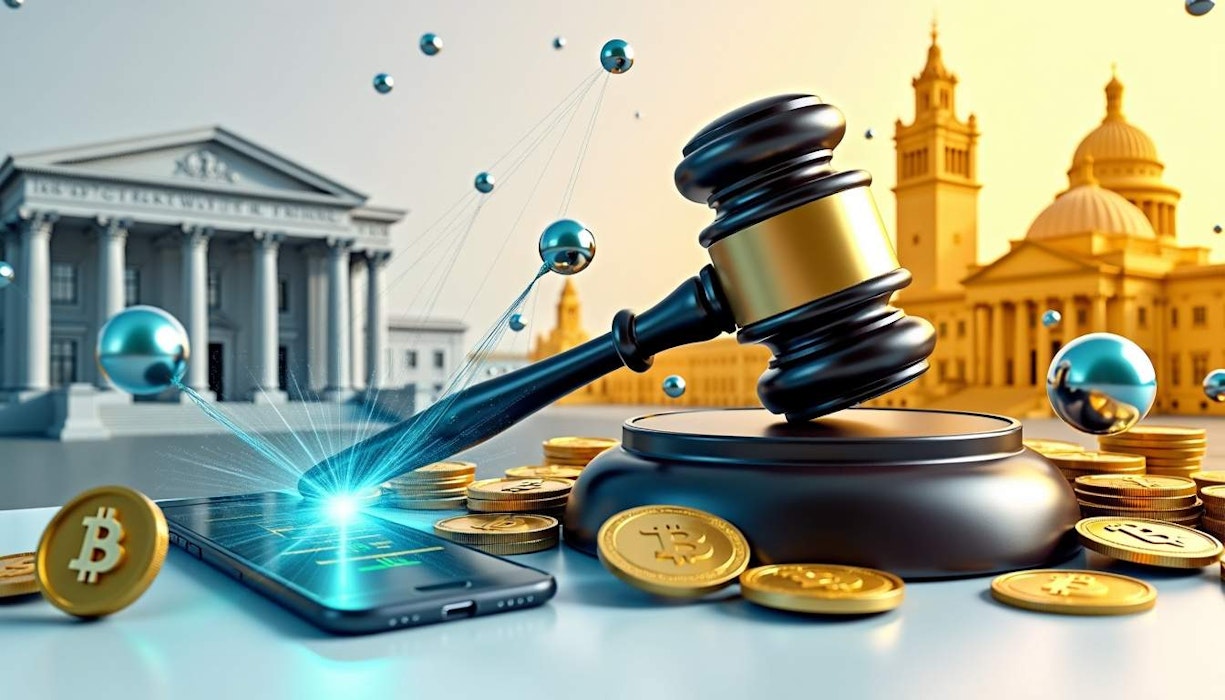With the SEC's deadline to appeal the Ripple case ruling looming, I've been diving deep into the waters of XRP's legal landscape. The July 2023 ruling was a breath of fresh air for many in the community, especially with Judge Torres' clear distinction that secondary sales of XRP are not securities. But as with everything in crypto, there's a flip side and some seasoned players are advising caution.
Understanding XRP's Independence
One thing that stands out to me is how independent XRP is from Ripple as a company. The token itself operates on a decentralized and open-source protocol. No single entity controls it; transactions are validated by a network of nodes using a consensus mechanism. This decentralization is crucial because it enhances security and trustworthiness, making it less susceptible to regulatory whims aimed at any one organization.
Moreover, even if Ripple were to cease operations tomorrow, XRP would continue to function autonomously. This independence could be pivotal for its adoption across various sectors since it allows for seamless operation without reliance on any specific company or its fate.
The Case for Global Acceptance
I find it interesting that countries looking for stable cross-border payment solutions might prefer an asset like XRP that's not tied to the interests of any one nation or corporation. Its neutrality could make it more palatable for diverse geopolitical contexts. Just look at how BRICS nations are considering using it for their payment systems!
The characteristics of XRP—speed, scalability, energy efficiency—are also independent of Ripple’s influence and make it an attractive option for cross-border payments. These features can drive its adoption as a reliable bridge asset between different currencies.
The Potential Fallout from an SEC Appeal
Now let's talk about the elephant in the room: what happens if the SEC decides to appeal? Some experts think that could reintroduce chaos into an otherwise clearer situation. Regulatory uncertainty has been one of the biggest dampeners on XRP’s market performance; just look at how long it's dragged on already.
An appeal could lead to immediate market volatility and possibly shake investor confidence again—even though many institutional players seem undeterred by recent events. I mean, they’re probably looking at things more strategically than us retail folks who sometimes panic at every news cycle.
Institutional Support: A Pillar of Stability?
Despite all this potential upheaval, one thing seems clear: institutional support remains strong. The recent favorable ruling has likely reinforced the perception that XRP is here to stay as a legitimate tool for liquidity among financial institutions.
It’s fascinating how speculation plays such a huge role in cryptocurrency markets too! If an appeal does happen and introduces new uncertainties, we might see some shifts in speculative dynamics—but then again, we might not!
Final Thoughts: Navigating Through Uncertainties
In conclusion (at least my conclusion), while there are robust practical applications for XRP out there waiting to be utilized—like remittances and micropayments—the legal uncertainties surrounding Ripple need some ironing out first.
The independence of XRP enhances its credibility and makes it more appealing as jurisdictions around the world figure out their stances on cryptocurrencies. So here we sit: poised on the edge of possible turbulence but also ripe with potential for mainstream adoption.
As someone who's been around these parts for a while now, I can't help but feel cautiously optimistic...
